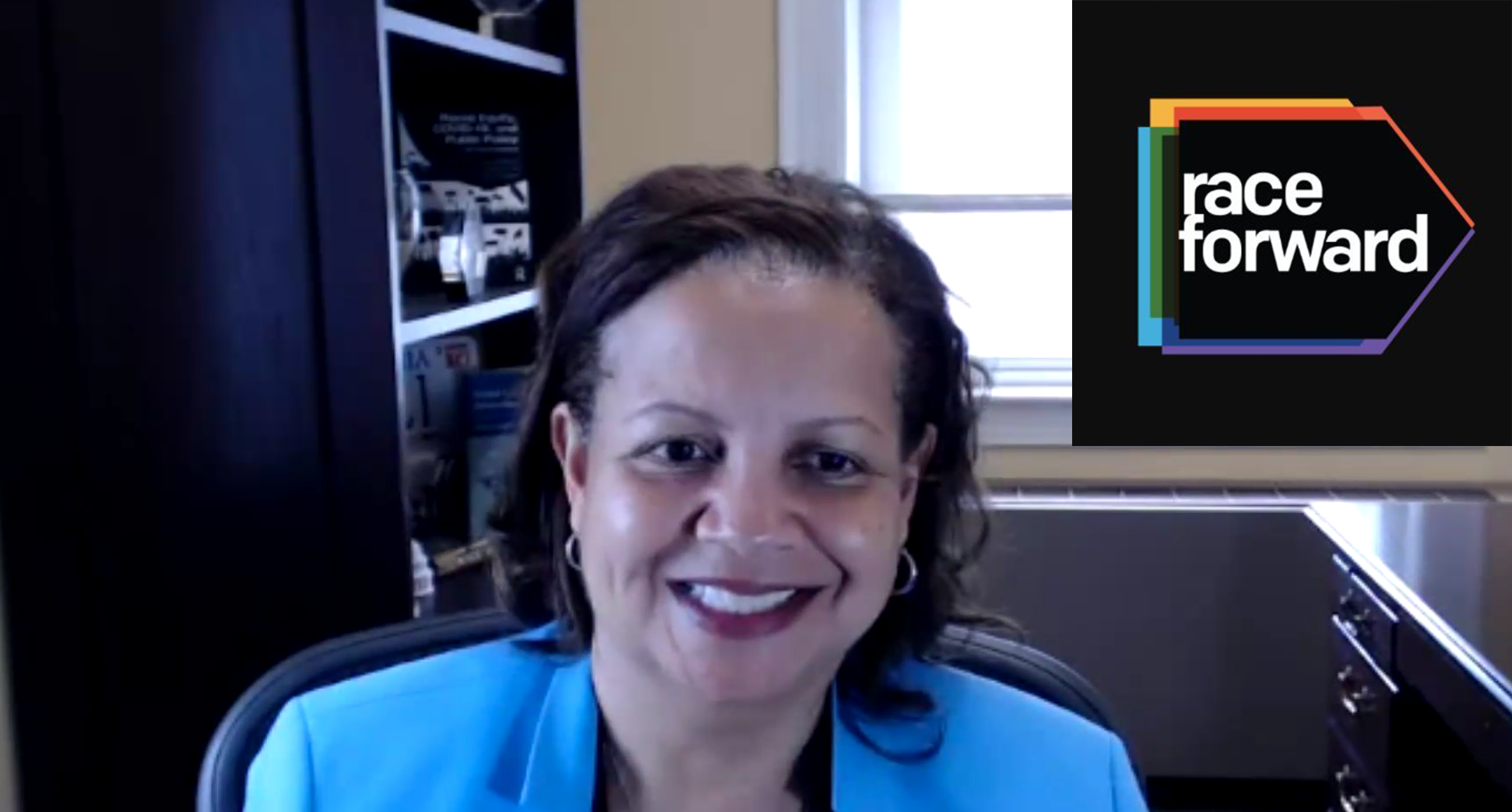News
"Navigating Nervousness" - Wilder School dean addresses racial equity in government at federal webinar

By Tiffany Murray-Robertson
During a recent webinar specifically aimed at federal employees, Wilder School Dean and Professor Susan T. Gooden, a leading expert in race and social equity in government, offered her insights on tackling racial inequities within government institutions. The session, hosted by Race Forward—a nonprofit organization dedicated to catalyzing movement-building for racial justice—was moderated by Carlton Eley, Senior Director for Federal Strategies. This event, which was held on June 6, was part of Race Forward’s Federal Initiative to Govern for Racial Equity (FIRE), which focuses on promoting racial justice strategies across federal agencies.
Gooden's discussion centered on the often-overlooked issue of nervousness around racial equity in government, providing a strategic framework for addressing these challenges. “Racial equity is about closing the gaps so that race does not predict one’s success,” Gooden explained, emphasizing the need for intentional actions to bridge equity gaps. “Persistent gaps in material conditions, quality of life, and life expectancy are not an accident. Instead, we have to be deliberate and intentional about making investments where they are needed the most.”
She described this nervousness as a significant barrier to effective governance, where emotional comfort often overshadows the necessity of doing the hard work of examining racial inequities. “Sometimes emotional comfort takes priority over having difficult conversations in the field of public administration,” Gooden pointed out. “If you can’t name or engage the problem, then you can’t develop a proper intervention to correct it.”
Highlighting the historical context of government involvement in racial issues, Gooden noted the significant role that historical governmental decisions have played in enforcing racial categories. “We’ve had Supreme Court decisions that have made racial determinations for individuals and groups…because there were benefits that were associated with whiteness,” she said.
Gooden cited the Seattle Race and Social Justice Initiative as a case study to illustrate successful strategies for addressing racial inequities at the local government level. This initiative has engaged in comprehensive racial equity analysis to identify and correct inequities across various government functions. She underscored the importance of the naming, blaming, and claiming process as steps toward addressing racial inequities: “Naming means identifying the agency that has a specific practice or action that is racially unjust. Blaming involves identifying the resources or the units within that agency where the inequities occur, and claiming is whereby the agency replaces racially inequitable practices and policies with ones that are more just and equitable.”
As the session transitioned to a vibrant Q&A segment, participants sought advice on dismantling systemic barriers, engaging staff in equity discussions, measuring progress, and understanding the impact of federal policies on local communities. These inquiries underscored the audience’s commitment to deepening their engagement with racial equity.
“Combatting a nervous area of government does take time. The external environment in which we operate changes from administration to administration across the political landscape, but with sustained commitment, significant changes can and do occur that reduce racial inequities in government.”
— Susan T. Gooden, Ph.D.
Following the Q&A, Dr. Vankita Brown, Senior Advisor for Equity at the National Oceanic and Atmospheric Administration (NOAA), shared her experiences implementing equity policies. Brown emphasized the importance of robust data collection and highlighted NOAA’s initiatives to foster an inclusive culture and conduct regular equity audits. She called for embracing discomfort in discussions about race to achieve substantive changes and urged public servants to lead by example in setting standards for equity.
Gooden concluded by reiterating the need for ongoing commitment and dialogue to address the nervousness around racial equity in government. “Combatting a nervous area of government does take time,” she acknowledged. “The external environment in which we operate changes from administration to administration across the political landscape, but with sustained commitment, significant changes can and do occur that reduce racial inequities in government.”
Gooden’s insights provide a compelling roadmap for public administrators and policymakers dedicated to advancing racial equity and justice within their spheres of influence. Her call for intentional actions resonates as a critical step toward dismantling systemic barriers and achieving greater social equity.
.jpg)